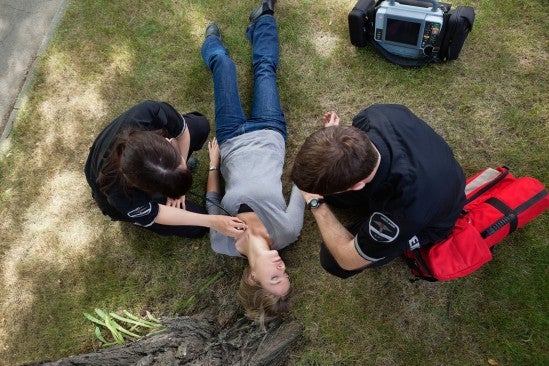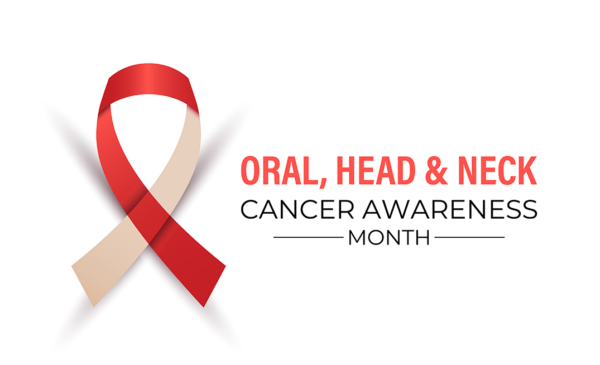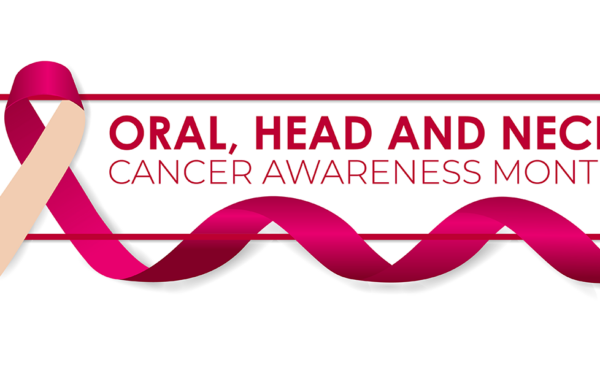Dental Medicine Responder Training (DMRT)
Dental Medicine Response

Leading theory and policy research supporting dental professionals for emergency preparedness
The Dental Medicine Responder Training (DMRT) Office, College of Dentistry, University of Illinois Chicago (UIC), performs theory and policy research supporting the role of the dental profession in first responder and health security capacities. The DMRT Office has three primary objectives: 1) identify pathways to continue advancing the role of dental professionals in supporting disaster and pandemic response efforts of local responder teams, 2) assist in developing the associated policy changes needed to facilitate this involvement, and 3) research emerging dental anthropologic, forensic, and biometric standards and technologies that have the potential for use in first responder and health security activities.
Dental professionals serve in civilian and military first responder capacities during natural disasters, man-made (anthropogenic) disasters, and pandemic events, assisting various investigative and law enforcement agencies when processing missing people and identifying anthropological remains. Furthermore, dental professionals are able to utilize their unique diagnostic skill sets during forensic dental, oral, and facial data gathering and analysis for first responder activities. As such, dentists are uniquely positioned at the forefront of emerging biometric and forensic standards and technologies for these purposes, and can play a critical role in first responder and health security efforts.
The DMRT Office assists various University of Illinois, Illinois State, and Federal agencies, facilitating dental research consistent with the Illinois Dental Practice Act (2006 Original Act; 2015 Amendments) and the 2013 Pandemic and All Hazards Preparedness Act (PAHPA). DMRT faculty work in collaboration with faculty from the UIC College of Pharmacy Forensic Science Program and the UIC School of Public Health Emergency Management and Continuity Planning Program, and with members of the UIC Police Department. Additionally, we collaborate with a number of local, state, and national organizations, including: the DuPage County Health Department, the Security Working Group of the Illinois Medical District (IMD), the Illinois Department of Public Health (IDPH), the Illinois Terrorism Task Force (ITTF), the Illinois State Dental Society (ISDS), and the Association of State and Territorial Dental Directors (ASTDD). DMRT also assists the McHenry County Coroner’s Office in anthropologic and forensic dentistry cases.
DMRT is also working to ensure the digital generated dental, oral, and facial data packets produced by next generation technologies will maintain secure targeting, acquisition, transmission, and movement, without interference and/or modification. This work is carried out in support of the American Dental Association (ADA) Standards Committee, the American National Standards Institute/National Institute of Standards and Technologies (ANSI/NIST)-Information Technology Laboratory (ITL) Working Group, and the ANSI Accredited Standards Committee (ASC Z136).
Education & Training
Recommended Competencies
Core Disaster Life SupportTM (CDLS)
Core Disaster Life SupportTM is an instructor-led course designed for all public health care personnel and social workers, clergy, and mental health personnel, administrators and planners. CDLSTM is intended to provide a basic uniform standard of competencies, skills and knowledge to health care and public health responders for WMD response.
In this course, you will learn to:
- Define All-Hazards Terminology
- Recognize potential public health emergencies (PHE) and their causes, risks and consequences
- Define the D-I-S-A-S-T-E-R™ paradigm
- List scene priorities of a mass casualty incident (MCI) response
- Describe pre-hospital and hospital medical components of a disaster incident response
- Describe personal protective equipment (PPE) and decontamination
- Describe the role of your local public health system in PHE’s
- Describe planning initiatives in Illinois and locally
Basic Disaster Life SupportTM (BDLS)
Basic Disaster Life SupportTM addresses the need to standardize emergency response and treatment for mass disasters, terrorism and other public health emergencies. BDLSTM is intended to provide an intermediate, uniform standard of competencies, skills and knowledge to front line health care and public health responders for WMD response. It focuses equally on the clinical and public health aspects of disaster. This course is geared to the needs of physicians, physician assistants, nurses, dentists, pharmacists, allied health professionals, public health professionals and veterinarians.
Skills Gained:
- All Hazards Course Overview, a review of the D.I.S.A.S.T.E.R. Paradigm
- Natural and Accidental Man-made Disasters
- Traumatic and Explosive Events
- Nuclear and Radiological Events
- Biological Events
- Chemical Events
- Casualty Decontamination
- Inoculation Training
- Critical Incident Stress – Psychological Impact of Disasters
- The Public Health System including media and communications utilization, regulatory and legal issues of event management, community and hospital disaster planning and community, state and federal disaster resources
Advanced Disaster Life SupportTM (ADLS)
Advanced Disaster Life SupportTM is an advanced practicum of the principles introduced in Basic Disaster Life Support™ (BDLS™) designed for persons on specialized response teams. ADLSTM is intended to provide an advanced, uniform standard of competencies, skills and knowledge to front line health care and public health responders for WMD response. Successful completion of the BDLSTM course is a prerequisite. This is a two-day course consisting of eight hours of didactic training and eight hours of hands-on training on an Emergency Care Simulator.
Day 1
ADLSTM includes lectures on the following:
- MASS Triage™ in detail
- Community and hospital disaster planning
- Media and communications during disasters
- Mass fatality management
- In addition, small group interactive sessions allow students to work through a series of difficult questions of disaster management in a table top format
Day 2
Four skills stations reinforce the previous day’s learning. These skills stations include the following:
- MASS Triage™- This challenging station allows the students to practice the concepts of the disaster paradigm with an emphasis on patient triage. Simulated disaster victims must be triaged and treated correctly while attempting to manage a chaotic scene and request appropriate resources.
- PPE and Decontamination – This station teaches important concepts about the use of Personal Protective Equipment and decontamination technique. Students are given the opportunity to wear PPE and participate in a simulated decontamination while attempting to render medical care.
- Disaster Skills – This station teaches important information about vital skills necessary for medical disaster management. Students are taught vital information on the Strategic National Stockpile and proper Mark-I kit use. Students are also allowed to practice smallpox immunization.
- Emergency Care Simulator – Recognition of victims of a chemical and biological disaster is paramount. This station is designed to reinforce the detection and proper treatment of conditions that may occur during disasters that we do not normally treat. Treatment of chemical, biological, and traumatic patients is covered. The use of these high fidelity simulators allows the student to see, hear and feel information that would normally be provided by an instructor. It allows for a more realistic experience than normal manikins would allow.
BDLSTM-certified individuals are eligible to take the ADLSTM course. The instructor-led presentation of ADLSTM is a sixteen credit-hour course; eight hours of classroom lectures and eight hours of hands-on practicum exercises. To maintain these credentials, renewal training is required every three years. Meets the Occupational Safety and Health Administration (OSHA) Code of Federal Regulations 1910.120 requirement for Hazardous Materials Awareness. Learn About:
- Casualty decontamination and the use of PPE
- Essential skills lab-smallpox vaccination
- All-hazards training skill scenarios utilizing mock disaster drills and human patient simulators
- MCI information systems and technology applications
Additional Resources
- American Medical Association
- Centers for Disease Control and Prevention
- American Dental Association
- American Academy of Forensic Sciences
- American Board of Forensic Odontology
- Society for Disaster Medicine and Public Health
- Medical Reserve Corps
- Illinois Department of Public Health-Division of Oral Health
- Illinois State Dental Society
- Illinois Helps
- Ready Illinois
- Illinois Medical Emergency Response Team (IMERT)
- Chicago Public Health Department Health Alert Network
- UIC School of Public Health
- UIC Emergency Management and Continuity Planning Program
- UIC Institute for Public Safety Partnerships
- TEMS Supply
Recent Legislation
2006
Illinois Public Act 94-409: Dental Emergency Responder passes
2011
US House of Representatives: H.R. 570 Dental Emergency Responder (DER) passes full House
2013
US House of Representative H.R. 307 Passes: Pandemic and All Hazards Preparedness Reauthorization ACT
“A dentist or dental hygienist who is a dental emergency responder is deemed to be acting within the bounds of his or her license when providing care during a declared local, state, or national emergency.”
Dentists and dental hygienists can support national emergency, disaster, and forensic needs providing clinical care and infrastructure for: “walking well” care, pandemic vaccination support, biometric information, and forensic dentistry. The Illinois Oral Health Care community assists the State of Illinois by providing licensed dental personnel for surge support to major disasters, pandemics, for forensic identification, and other readiness planning needs, as determined by appropriate authorities.
2015
Illinois Dental Practice Act Amendments Passed: “Dental emergency responder” changed to “dental responder.”
“Dental responder” is defined as “a dentist or dental hygienist who is appropriately certified in disaster preparedness, immunizations, and dental humanitarian medical response consistent with the Society of Disaster Medicine and Public Health and training certified by the National Incident Management System or the National Disaster Life Support Foundation.”
Forensic Identification, Biometrics and Technology
The Dental profession has had a long historical role in identifying anthropological remains and missing people. Dentists have unique skill sets assisting law enforcement as critical members of the investigative process. The Oral Health Care community assists local, County, State and Federal Law Enforcement agencies providing dental personnel for disaster, pandemic, biometric, forensic and other response needs as determined by appropriate authorities.
Criminal Justice Information Service
Illinois State Police Clearinghouse for Missing Persons
Technologies used for anthropological, biometric, and forensic dentistry
- Lasers
- Mass Spectrometry
- Raman Spectroscopy
- Infra-red Spectroscopy
- Radiofrequency
- Terahertz Spectroscopy
- Plasma Energy
Contacts
DMRT Office Room 569B
UIC College of Dentistry (MC 838)
801 South Paulina Street
Chicago, Illinois 60612
Directors
Michael D. Colvard
Director & Professor
(312) 413-5631
Co-Director, Dr. David Peters, JD
Retired, Senior Director of Police Services, Commander of Support Services, UIC Police Department, State of Illinois Police, University of Illinois Chicago
More About College of Dentistry Research
Research Programs, Centers & Labs
Multidisciplinary Oral Science Training (MOST) Program
Center for Wound Healing & Tissue Regeneration
Oral Medicine & Pharmacognosy (OMPR) Laboratory
Dental Medicine Responder Training (DMRT)


